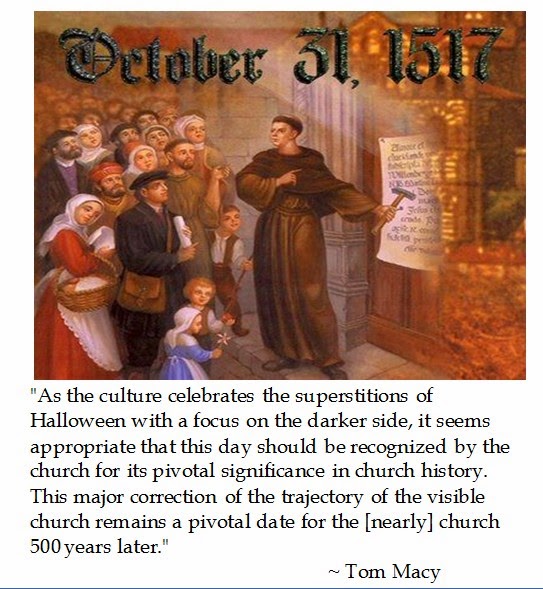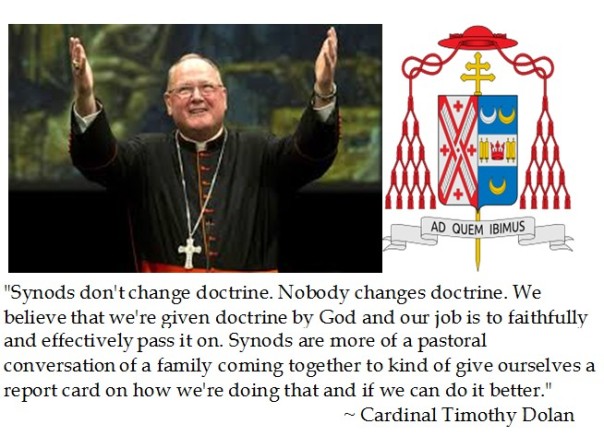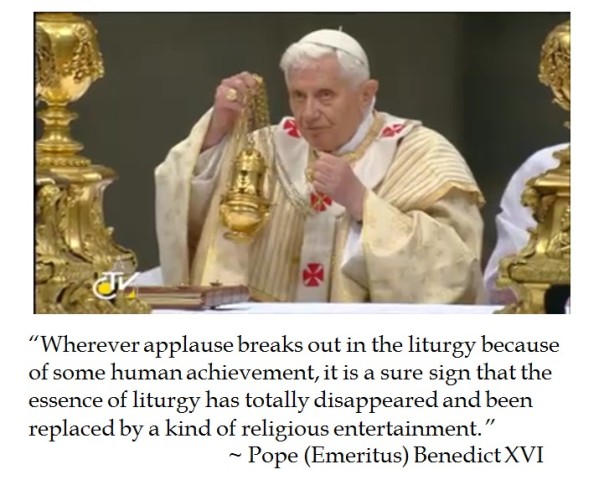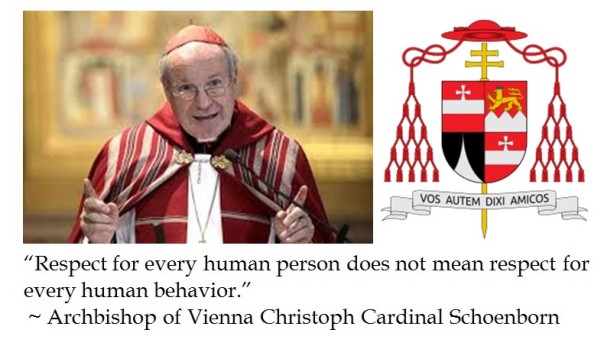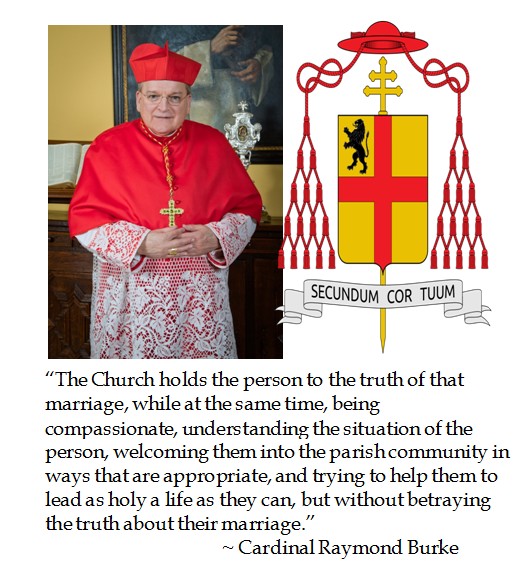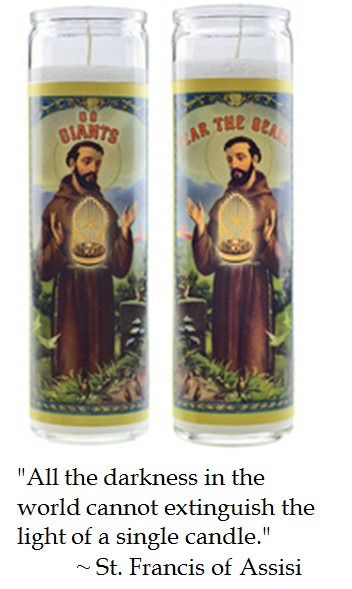On October 31, 1517, Martin Luther wrote the Archbishop of Mainz and Magdelberg Albrecht to object to the sale of indulgences. Luther wrote "Disputation of Martin Luther on the Power and Efficacy of Indulgences" (which later became known as the 95 theses) and posted them on door of the Schlosskirche in Wittenberg, (also known as the Church of All Saints). This defiant act by the Augustinian monk lead to the Protestant Revolution.
Luther's major theological insight from the 95 Theses is Justification by Faith (sola fides), which undercuts indulgences.
Contemporary Protestants have suggested celebrating Reformation Day as an alternative to Halloween. Wags waxed about Reformation Day that theology nerds need a holiday too. But it seems dubious if kids will dress in brown robes and try to nail papers to many doors.
Two points of history underlie the Reformation protest. The issuing of indulgences were fueled by the existence of the secular Papal States. Indulgences were sold to support the Holy See. Since the Holy See lost the Papal States in 1871 (and came to terms with the loss of secular power as embodied in the 1927 Treaty of Lateran) the Vatican can concentrate on pastoring the faithful.
A marker in intellectual history is why the Protestant Reformation was spread so successfully. The circulation of Luther's ideas in the 95 Theses was greatly aided by the advent of the Gutenberg printing press in the Fifteen Century.
Many have likened the ease of exchanging ideas via the internet with the revolution brought about by the Gutenberg press. Social media is another cyber revolution which has religious reverberations to date.
During the recent Synod on the Family at the Vatican, some of the organizers tried to insert language which the secular press called an earthquake. A great majority of the Synod Fathers dissented but this was going against the machine. However, social media proved to be an ideal platform for bishops to disseminate information and for the Catholic vox populi to share their concerns. Disseminating information and allowing the faithful to voice their views proved successful. Pope Francis had the Synod vote on every paragraph and the three egregious parts did not receive adequate support and were removed.
Although it took 482 years, the Lutheran World Federation and Catholic Church did come to terms with their differences in a Joint Declaration on the Doctrine of Justification (JDDJ), in which a common understanding of our justification by God's grace through faith in Jesus Christ." Catholics maintain that it did not negate the Council of Trent but that its canons are non-applicability to concrete Christian bodies in the modern world.
Still, some Christian soldiers want to fight, but like the Hatfields and McCoys, they have forgotten what they are fighting over. During a thoughtful conversation about faith, a Protestant was unphased when he learned of the agreement on sola fides between the Churches and wanted to continue to haggle over the other 94 points-- and he was not even Lutheran!
As we live in a time when Christians around the world are being persecuted for their faith, we ought to remember the wisdom of the Lutheran Theologian Peter Meiderlin (a.k.a. Ruptertus Meldenius) : "[U]nity in necessary things; liberty in doubtful things; charity in all things."
It is commendable to mark a point of history like Reformation Day. It is cute but quixotic to try to have an alternative to Halloween with a holiday for theology nerds. That is almost as futile as First Lady Michelle Obama's advice to kids about Trick or Treats. But we should join with our brothers and sisters in faith on the many things on which we agree to help build the Kingdom of God rather than continue to form a spiritual circular firing squad.
